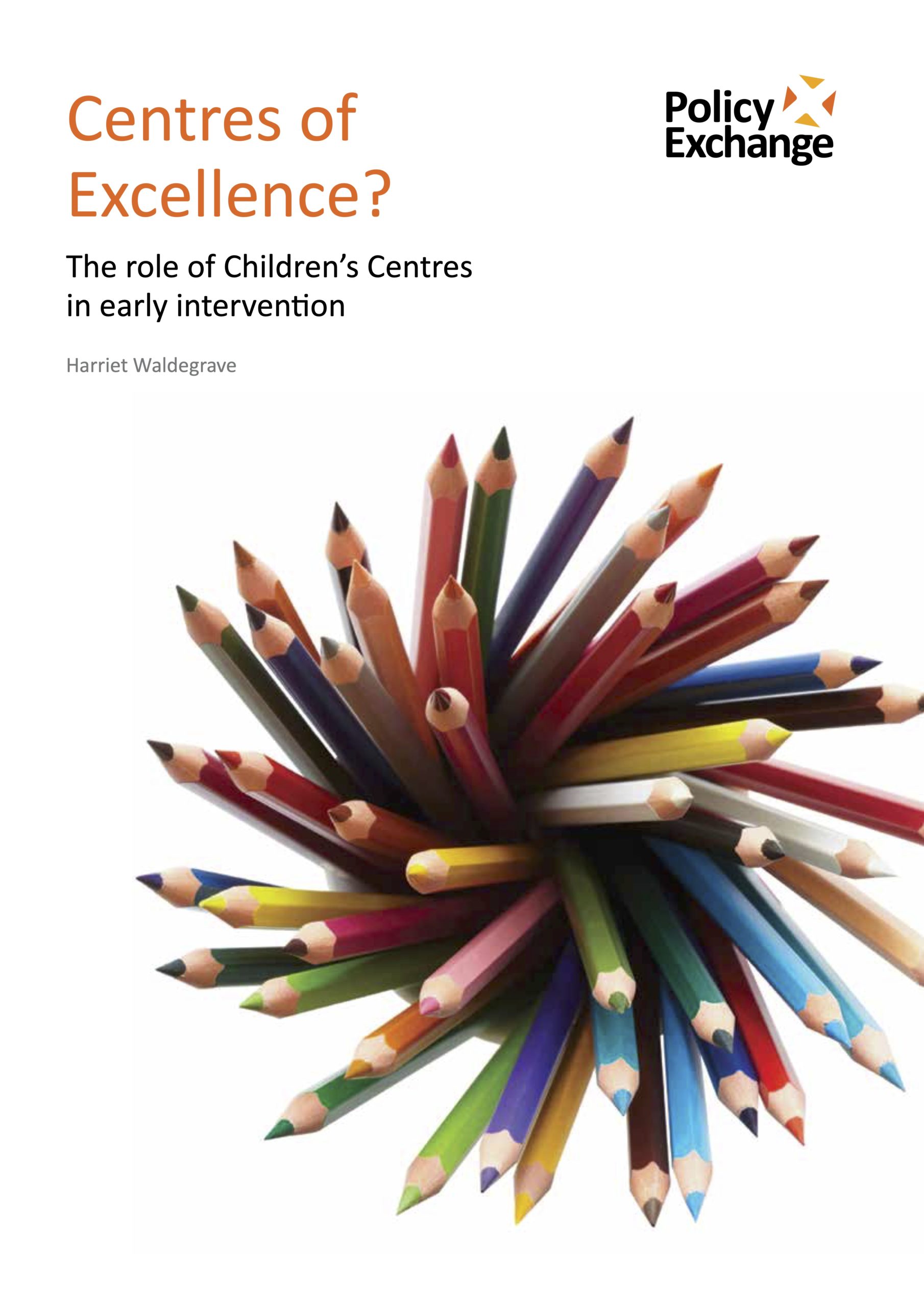
Centres of Excellence? The role of Children’s Centres in early intervention
Parents earning as much as £150,000 a year should have their tax-free childcare entitlement cut with the savings of up to £238m used to improve the quality of childcare in the poorest areas of the country.
Centres of Excellence? acknowledges that families from all backgrounds face rising childcare costs. However, it argues that in a time of stretched budgets, supporting high quality care for children from deprived backgrounds offers greater value for money than subsidies to the richest parents. It also argues that the government is right to allow childcare to be delivered in a range of settings, rather than just Children’s Centres.
The report found that since 2010, funding for Children’s Centres (formerly known as Sure Start Children’s Centres) has been cut by up to 28%. But despite this reduction in spend, only 35 centres had actually closed by April 2013 – around 1% – with other ‘closures’ accounted for by local centres merging. 67% of the UK population still live within 1 mile of a centre.
But as funding pressures continue – including through the announced switch in funding to support childcare for deprived 2 year olds – the paper argues that Children’s Centres will only be sustainable if they return to their earliest purpose around helping families in the most deprived areas.
Research for the report finds that currently:
- Children’s Centres in the poorest parts of the country have seen their budgets cut at the same rate as those in wealthier areas
- 14% of centres are still based in the richest 30% of the country, where only 5% of the most deprived children live.
Academic studies have shown that poverty affects a child’s life chances:
- Only 36.3% of children on Free School Meals (FSM) achieved 5 A*-C GCSEs, including English and Maths, compared to 62.6% of children not on Free School Meals.
- 5 year old children living in the poorest parts of the country are over a year behind children in the wealthiest areas when it comes to vocabulary development.
- Boys who grew up in poverty are almost three times as likely to be unemployed at the age of thirty as those who did not.
The report also argues for far greater clarity over how individual centres are performing, with greater transparency over funding, and a consistent national set of indicators of likely success to allow parents, Local Authority commissioners and centre managers compare their effectiveness and value for money against other centres with similar circumstances.
Other recommendations include a greater focus on training programmes for managers based on the successful models in the schools sector, on strengthening governing bodies, and on ensuring that expensive licensed programmes are delivered faithfully to maximise their value for money.
Testimonials
“very interesting reading and I think the suggestion … of a change in terms of what the government is proposing, tax relief, and using that money that would be saved in order to improve the quality of a two year old offer, I think is a very interesting idea, and it’s one we will want to consider very very seriously”
Stephen Twigg MP – (then) Shadow Education Secretary
“I thought this was a really good report, it’s incredibly thoughtful, it’s very well evidenced and it’s very practical as well, so it’s absolutely the best kind of think tank report”
Carey Oppenheim – Chief Executive, Early Intervention Foundation
“Congratulations to Policy Exchange who have produced a thoughtful piece of work”
Dame Clare Tickell – Chief Executive, Action for Children

